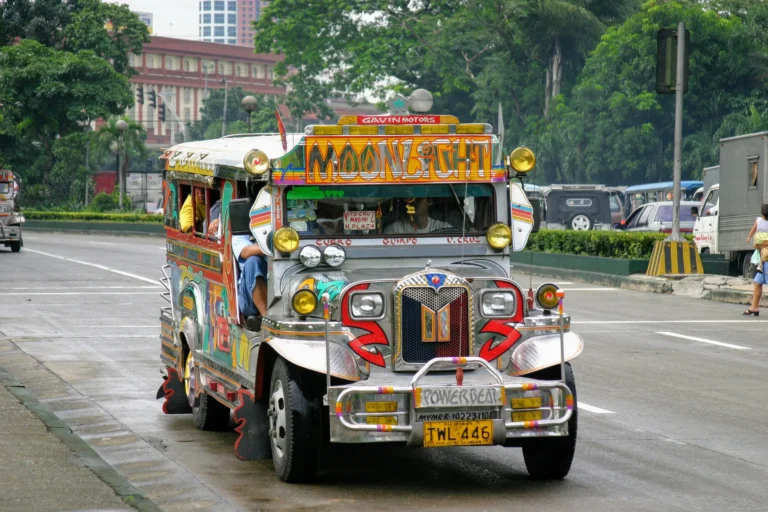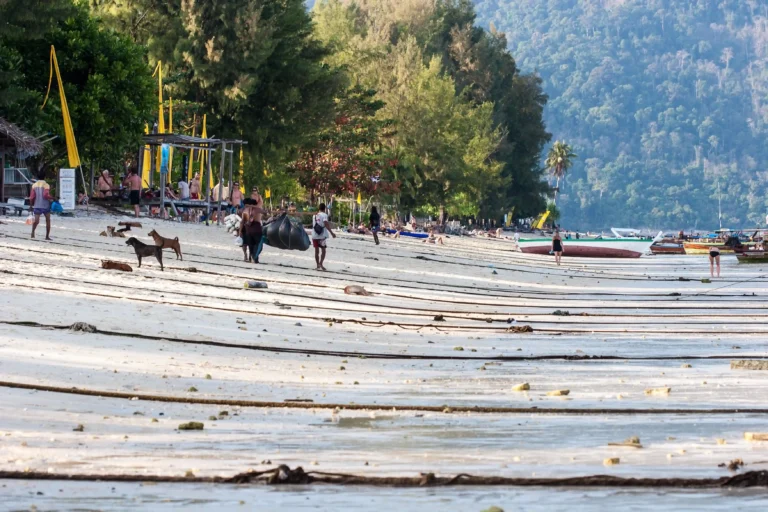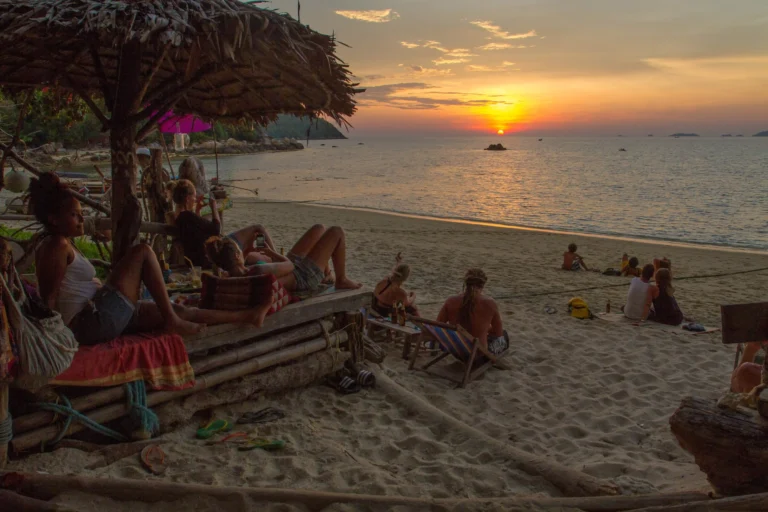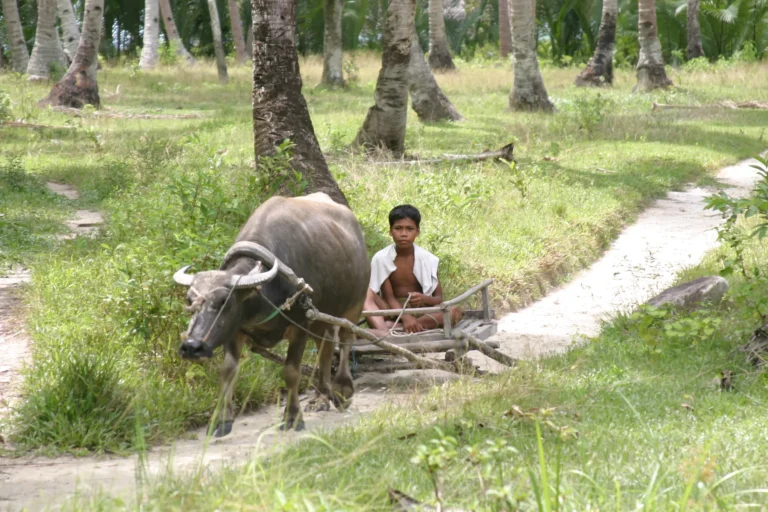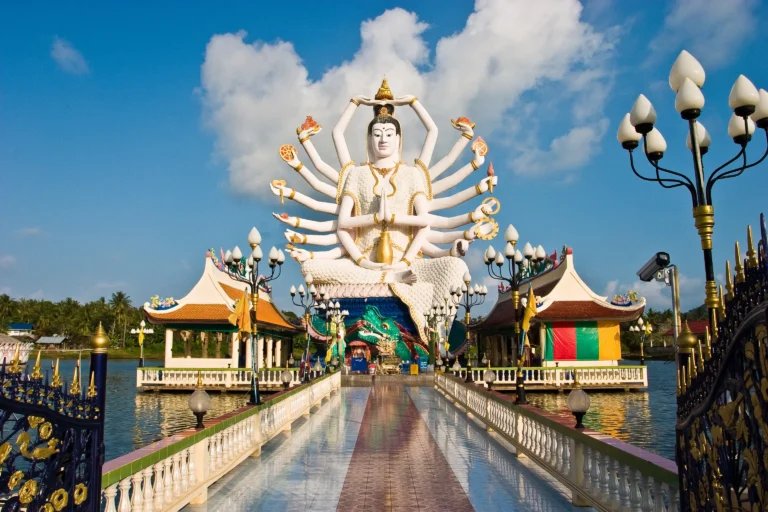In the morning, we started to explore the surroundings. It was a sunny morning. Makati is a business district in Manila. There are a lot of skyscrapers, banks, modern shopping arcades, etc. What is very specific to the Philippines are the jeepneys.
Jeepneys are a popular means of public transportation in the Philippines. The original jeepneys were made from the U.S. military jeeps left over from World War II and are well known for their colorful decorations and crowded seating. However, since the U.S. military has long since run out of surplus jeeps to give away, today’s jeepneys are quite literally manufactured from scratch.
Our hotel was situated just next to the shopping center Glorietta and also close to another very modern shopping center, Greenbelt.
We went to the Marsman Tours office to book the trip and recommend what to see and which islands to visit. We had an appointment with Mr. Pedro B. Young, who was patient and friendly. He was a good tourist agent because he wanted to understand what kind of trip would suit us. Finally, we bought a 3-day trip to Palawan.
On that day, we also visited Rizal Park, the Chinese and Japanese Gardens, and wandered around Makati City.
Rizal Park is named after the Philippines’ national hero, Dr. Jose Rizal, who was executed in this park. Rizal Park can be considered the symbolic seat of the nation’s heart and soul. The park is spread over 60 hectares of gardens, walks, open spaces, and wooded areas. Points of interest in the park include Rizal’s monument, fountains in the central pool, Chinese and Japanese gardens, and a huge relief map of the Philippines archipelago. A few of the numerous offerings of this park include playgrounds, restaurants, horse-drawn carriage rides, fountains, and an open-air concert hall.
The most striking thing about the park, however, is its namesake. José Rizal was a Filipino doctor, poet, scholar, and, most of all, a patriot. He was one of the independence movement’s leaders from Spain in the latter half of the 19th century. Unlike many of his predecessors who advocated revolution (there were some 100 revolts and rebellions before this), Rizal advocated peaceful means for independence.
Related reading:
